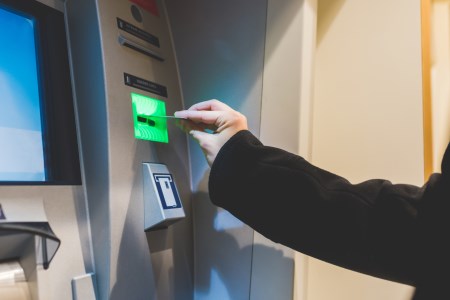Banks, traditionally, are a way in which you can store your money. If you choose the correct bank, then your money is relatively safe. There is also a small chance that you will be able to gain cash on top of what you have deposited (known as interest), but interest rates are so low across the board nowadays that you will tend not to make more than in line with inflation.
On this page, we are going to discuss how banks work. This is more of a general overview, and there may be small changes between banks and the like, but for the most part, banks in every single country are going to follow this same ‘structure’.
For most people, banks are going to be nothing more than a place in which they can store their money. However, some banks will also allow you to store valuable items there too. However, since there is no money to be gained on the storage of valuable items, banks will charge a fee for these services.
Your bank will allow you full access to your cash at all times. You will normally be able to go to a retail branch to withdraw your cash, through an ATM, make payments online, make payments in store etc.
There have been cases where people have been unable to gain access to the cash that they have deposited into a bank. This is because the bank is going through a collapse. Some banks suffered this issue in the United Kingdom and the United States during the financial crisis. However, most governments will now ‘cover’ any amount deposited into these banks under a certain amount, which means that you should no longer lose cash during a banking crisis, not that a banking crisis is ever going to be a good thing for the economy.

Banks won’t just keep the money a person or company has deposited in their vaults. Technically, when you deposit money into a bank, you will be lending the money to the bank. This is where ‘interest’ comes from. Although, more on that in a short while.
The other services that a bank offers will come in the form of lending. They will do a lot of lending. They will offer home mortgages, loans to businesses, investment projects, investing in the stock market etc. When they invest in these projects, they are not investing with their own cash. Instead, they are investing with the cash lent to them by the people using the bank.
When they lend out money, they will be doing it a high-interest rate. Historically, they would have been lending at a 6% interest rate, although this number can vary drastically nowadays due to the deregulation of banks, and in the interests of competition.
The idea is that the money is lent out at this high-interest rate and borrowed from the person depositing the cash at a low-interest rate. Let’s say, it is deposited at 3%. The 3% borrowing rate (which would be unusually high) would go back to the people and businesses that have deposited money into the account, and the 3% difference will go towards the profits and the general running of the bank.

Banks will also make their money in other ways. For example; when a card or cheque is used, the bank may charge a fee for this. In fact, this is where banks make a good proportion of their money nowadays. They only make 1% on each transaction, but since most transactions nowadays are done through card or cheque, this money is going to add up quite considerably.
Because interest rates have fallen quite a bit in recent years, it is unlikely that you will gain anything other than the ‘convenience’ of having your money deposited in a bank. In fact, in many cases, you will be charged money to have your cash deposited at a bank. This will cover all the services that a bank offers you, e.g. having retail outlets that you can use and a convenient way in which you can handle your cash with the bank.
